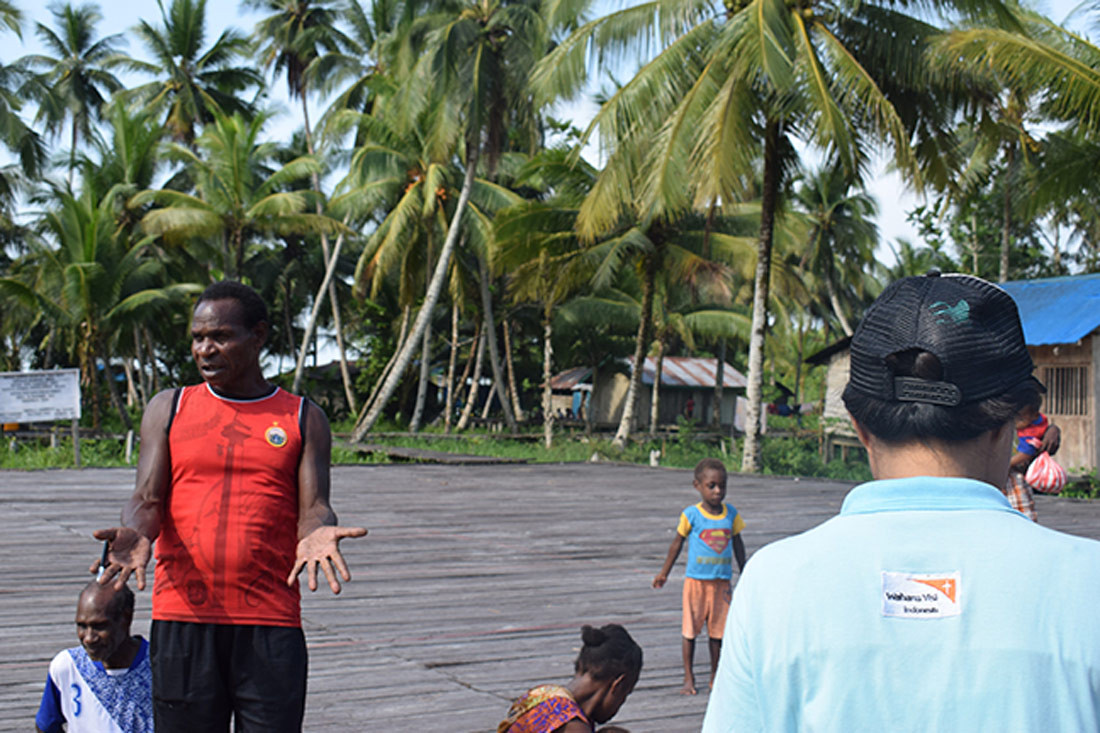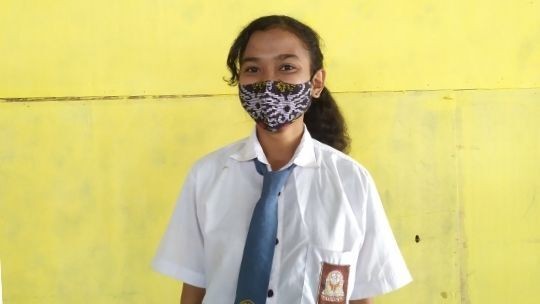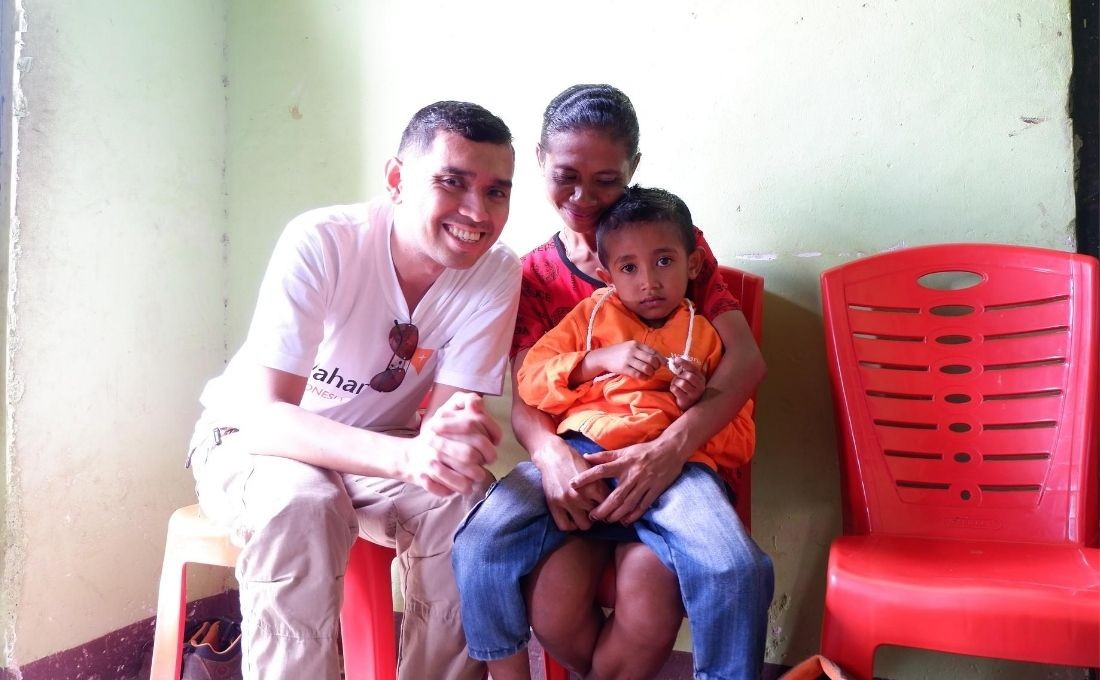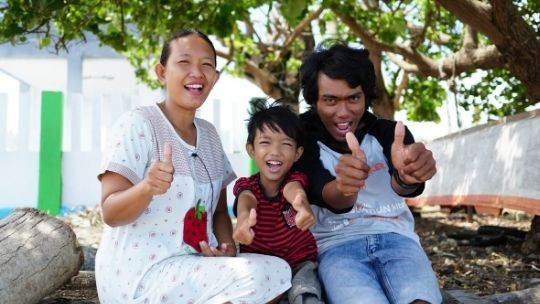Staff's Story: There is a Hope to Change for People in Asmat

Birak Subvillage is located in Jetsy District, Regency of Asmat, Papua. About 59 households stay in Birak. Two to four households live together in a house, so that is only 29 houses appear in Birak.
Everyone has to be careful in passing the streets in Birak because the streets are made of wood and did not be placed properly. Some woods are missing and so it makes the street and bridges are prone to be passed.
“You should be careful, Mom! The woods are broken,” said some people reminding me when I was passing the street.
In fact, with that bad condition, no one has an action to fix the problems.
Not only the streets problem, but people in Birak also do not have a good sanitation facility. The toilets with proper septic tanks are still hard to find. Some houses are having a toilet but with no septic tank inside, and the dirt are flowing to the river or to the bottom land.
The habits of the people in this village are still fairly bad. Swamp areas and the occurrence of the high tide every day, making the people, especially children are still doing open defecation (BABS) every day. Seeing children defecating on a bridge or kitchen between the cracks of the board is common in Birak.
Wahana Visi Indonesia (WVI) through the Asmat Hope program does not necessarily remain silent seeing this bad habit. In December 2019, WVI’s staff in Asmat conducted cleanliness triggering to the people in Birak.
Although the activities were carried out in a strategic area, in the village square, not many people wanted to gather. Most of them are on the edge of the field or even see from their respective home areas.
When the triggering was conducted, information was obtained that the Birak community had defecated in the toilet, even though this had never happened. Through more intensive information gathering and using certain methods, the community persisted in the statement.
In conducting community triggering and awareness-raising activities, WVI is assisted by facilitators. Through the assistance of this facilitator, the community gradually stated their honesty that they were still practicing open defecation.
I remember when the facilitator asked and no one said the truth, I kept praying that God would open people's hearts to reveal the truth. As a result, there is one person who answers the facilitator's question and claims to have done open defecation.
"At home, there is a toilet but there is no septic tank," explained the person who was then followed by a statement of honesty by others.
The triggering was continued, and slightly sweet fruit. One villager named Matias Kawuri explained, "We used to borrow one another's place to defecate. Previously we thought it was normal to defecate on the edge of the river and it has been a long time since we do not have the right place in our house. After WVI made this activity, now we realize it is wrong and not good for health."
Matias explained, from the triggering activities carried out that day, he was committed to being ready to build toilets and cleaning facilities in his house.
Seeing this fact, I realized that changing a habit is indeed not easy. However, that is not impossible. I believe, when people do effort and prayer together, change can certainly occur, also for the people in Asmat. To God Be the Glory!
Written by: Mian Panjaitan, Project Manager Asmat Hope Wahana Visi Indonesia
#WorkWithLove #WorkInWahanaVisiIndonesia



